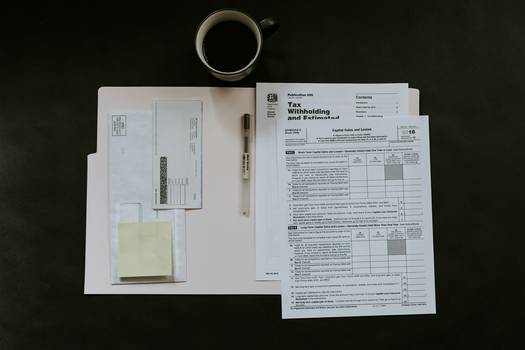Small Business Tax Deductions in Canada: The Complete Guide (2026)
Small business owners in Canada—whether you’re self-employed, a freelancer, consultant, or incorporated—can dramatically reduce your tax bill by claiming every eligible business deduction. Understanding what you can deduct, how to document expenses, and where to claim them on your return is crucial for maximizing your after-tax profit. This comprehensive guide explains all major Canadian small business tax deductions, real-world examples, and advanced tips for both sole proprietors and corporations.
- What’s Covered: Expense categories, home office, vehicles, startup costs, meals/entertainment, and more
- Who’s This For? Self-employed (sole proprietors/partnerships), incorporated businesses, gig workers, contractors, and side hustlers
- Quick Links: Eligible Expenses, Home Office, Vehicles, Startup Costs, Tips

Top Eligible Small Business Expenses in Canada
- Office Supplies & Equipment: Pens, paper, computers, printers, postage, and other supplies used for business.
- Advertising & Marketing: Website costs, online ads, print media, business cards, sponsorships, and signage.
- Professional Fees: Accountant, legal, consulting, and bookkeeping fees. Also includes tax preparation costs.
- Telephone & Internet: Business share of mobile, landline, and internet bills. If used for both business and personal, only the business portion is deductible.
- Travel: Airfare, hotels, taxis/Uber, and meals while traveling for business. Must be reasonable and supported by receipts.
- Meals & Entertainment: 50% of meals/entertainment with clients, staff, or for business purposes (e.g., networking events, working lunches).
- Insurance: Business and professional liability insurance, property insurance, and health/dental plans for employees.
- Rent: Rent paid for office, retail, or workshop space. Home office is claimed separately (see below).
- Wages & Benefits: Employee salaries, EI/CPP contributions, and benefits. Sole proprietors cannot pay themselves a wage; incorporated owners/officers may.
- Interest & Bank Fees: Interest on business loans, lines of credit, and business bank account fees.
- Training & Education: Courses, seminars, or industry certifications that maintain or upgrade business skills.
- Bad Debts: Amounts included in income but later determined uncollectible.
- Utilities: Hydro, gas, water—if used in a business location (not home office portion).
- Repairs & Maintenance: For business property, equipment, and vehicles (not capital improvements).
Home Office Deduction: Maximize Your Work-From-Home Expenses
- Who Can Claim: You work from home and use a dedicated space exclusively or primarily for business.
-
What You Can Deduct:
- Rent or mortgage interest (interest only, not principal for homeowners)
- Utilities (heat, hydro, water)
- Home insurance and property taxes
- Internet and minor repairs/maintenance (for the workspace)
- How to Calculate: Deduct the percentage of your home used for business (e.g., office is 12% of total square footage = claim 12% of eligible home expenses).
- Important: Unused expenses can be carried forward if your business income is too low to use the full deduction (for sole proprietors/partnerships).
- Corporations: May pay rent to a shareholder for use of home office (must be reasonable, properly documented, and reported as rental income by recipient).
For more, see: CRA Home Office Deduction
Business-Use-of-Vehicle Deduction
- Eligible Deductions: Gas, repairs, insurance, license/registration, parking, lease payments, and interest on car loans. Capital Cost Allowance (CCA) may be claimed for vehicle depreciation (limits apply).
- How to Calculate: Keep a logbook of total and business kilometers driven. Claim only the business-use percentage.
- Sample Calculation: If you drove 10,000 km in a year, and 3,000 km were for business, you can claim 30% of eligible vehicle expenses.
- Leased vs. Owned: Lease payments are deductible (limitations apply); owned vehicles claim CCA for depreciation (max $34,000 plus sales tax for most passenger vehicles in 2026).
- Tip: Ride-sharing, delivery, and gig workers should track every business trip for maximum deduction.
More details: CRA Vehicle Expenses
Startup Costs & Capital Expenses
- Startup Costs: Expenses incurred before your business officially opens (e.g., market research, incorporation fees, initial advertising) are deductible in your first year of business.
- Capital Expenses vs. Current Expenses: Major purchases (computers, furniture, machinery) are capital expenses—deducted over time using Capital Cost Allowance (CCA). Smaller, recurring items (supplies, repairs) are current expenses—deducted in full the year incurred.
- Intangible Assets: Trademarks, patents, goodwill, and franchise fees may also be deductible as capital expenses (special rules apply).
- Incorporation Costs: Legal/accounting fees to set up your corporation are deductible up to $3,000 in the first year; excess is amortized over five years.
For new business grants and credits, see: Startup Tax Incentives
Smart Claim Tips & Compliance for Small Businesses
- Keep Detailed Records: Save receipts, invoices, bank/credit card statements, and logbooks. CRA can ask for proof up to 6 years after filing.
- Separate Business & Personal: Use a dedicated business bank account and credit card for easier tracking and compliance.
- Use Accounting Software: Cloud-based tools (like QuickBooks, FreshBooks, or Wave) simplify expense tracking and reporting.
- GST/HST Input Tax Credits: If registered, claim back GST/HST paid on business expenses.
- Year-End Purchases: Buy equipment or supplies before December 31 to claim the deduction in that tax year.
- File On Time: Late filing triggers penalties and interest—even if you owe nothing. Corporations and sole proprietors/partnerships have different deadlines.
- When in Doubt, Ask: Consult a tax professional for complex situations (incorporation, employees, cross-border, etc.).
Frequently Asked Questions: Small Business Deductions
Related Guides & Resources
- Canada-Wide Business Tax Credits
- Startup Tax Incentives
- GST/HST Rebates
- Self-Employed Tax Tips
- Canada-Wide Individual Tax Credits
- Climate Action Incentives
For province-specific business credit guides, see: Ontario | BC | Quebec | Alberta | Manitoba | Saskatchewan | Nova Scotia | New Brunswick